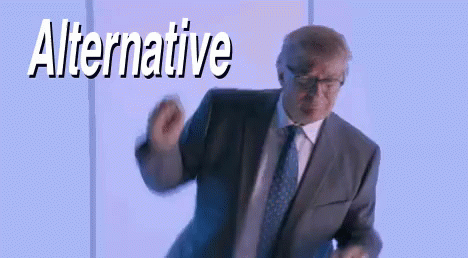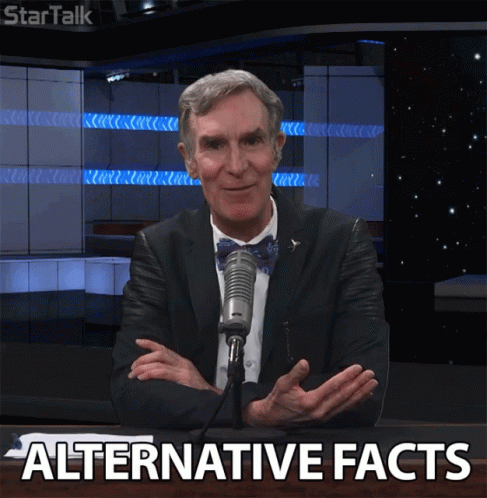What Does Alternative Facts Mean?
The term alternative facts is slang that refers to falsehoods or lies. It originated when Kellyanne Conway, a spokesperson for the Trump administration, used the term to defend false statements made by Sean Spicer, the White House press secretary. Instead of acknowledging that Spicer had made inaccurate statements about the crowd sizes at Trump’s inauguration, Conway claimed that he had presented “alternative facts.” This led to widespread criticism and ridicule of Conway and the Trump administration, and the term became popular on social media with hashtags like #alternativefacts and #seanspicersays. The term alternative facts is not an acronym or an abbreviation for anything. It is simply a phrase used to describe lies or falsehoods. It is often used sarcastically or mockingly to highlight the absurdity of someone trying to replace actual facts with false information. Here are some examples of how the term alternative facts can be used in conversation:
- “Did you hear what he said? He’s trying to pass off his lies as alternative facts!”
- “I can’t believe she’s still defending those alternative facts. The truth is right there!”
- “He’s really good at coming up with alternative facts to support his arguments, even when they’re completely false.”
- “I’m tired of politicians using alternative facts to manipulate the truth and deceive the public.”
- “She’s always twisting the truth and presenting alternative facts to make herself look better.”
The term alternative facts does not have a sexual connotation. It is simply a way to describe lies or falsehoods. It is not a typo or a mistake in typing, but rather a deliberate choice of words to downplay or distort the truth.



What Does Alternative Facts Mean From a Girl?
When a girl uses the term alternative facts, she is most likely referring to the same meaning as everyone else, which is falsehoods or lies. Girls use it in conversations to highlight the absurdity of someone trying to replace actual facts with false information. It’s a way for them to sarcastically or mockingly point out the dishonesty of a person or situation.
Girls use alternative facts similarly to everyone else, as it is a widely understood term. It is often used in discussions about politics, news, or any situation where someone is trying to manipulate the truth. Girls may use it in conversations with their friends, on social media, or in online communities where discussions about current events are common.
If someone uses alternative facts in a conversation with you, it’s important to consider the context and tone of the conversation. If they are using it sarcastically or mockingly, it’s best to respond in a similar manner. You can acknowledge their comment with humor or by expressing your agreement with their point of view.
For example, if someone says, “Did you hear what he said? He’s trying to pass off his lies as alternative facts!” you could reply with something like, “Yeah, those alternative facts are really something, aren’t they? 🙄”
It’s important to note that if someone is using alternative facts seriously and genuinely believes in the false information they are presenting, it may be more appropriate to have a respectful and open conversation about the topic.
Example 1:
- Girl A: Did you see that post on social media? They’re claiming that aliens have landed!
- Girl B: Haha, yeah right! Those are some serious alternative facts they’re spreading.
Example 2:
- Guy: I heard that the new superhero movie got terrible reviews.
- Girl: Oh please, those are just alternative facts. It’s actually getting rave reviews from critics.
Example 3:
- Girl A: Can you believe what he said about climate change? He thinks it’s all a hoax!
- Girl B: Ugh, those are some serious alternative facts. The science is clear on this one.
Example 4:
- Guy: I read an article that says eating chocolate is actually good for your health.
- Girl: Haha, nice try! Those are some interesting alternative facts about chocolate.
Example 5:
- Guy: Did you hear that conspiracy theory about lizard people secretly ruling the world?
- Girl: Oh boy, those alternative facts are really out there. People come up with the craziest ideas!
What Does Alternative Facts Mean From a Guy?
When a guy uses the term alternative facts, it can have similar meanings as when a girl uses it. It is often used to refer to falsehoods or lies, and guys use it in conversations to highlight the absurdity of someone trying to replace actual facts with false information. It’s a way for them to sarcastically or mockingly point out the dishonesty of a person or situation.
Guys use alternative facts similarly to girls, as it is a widely understood term. It is often used in discussions about politics, news, or any situation where someone is trying to manipulate the truth. Guys may use it in conversations with their friends, on social media, or in online communities where discussions about current events are common.
If a guy uses alternative facts in a conversation with you, it’s important to consider the context and tone of the conversation. If he is using it sarcastically or mockingly, it’s best to respond in a similar manner. You can acknowledge his comment with humor or by expressing your agreement with his point of view.
For example, if a guy says, “Did you hear what he said? He’s trying to pass off his lies as alternative facts!” you could reply with something like, “Haha, those alternative facts are really something, right? 🙄”
It’s important to note that if a guy is using alternative facts seriously and genuinely believes in the false information he is presenting, it may be more appropriate to have a respectful and open conversation about the topic.
Example 1:
- Guy 1: Did you see that game last night? The referee made some questionable calls.
- Guy 2: Yeah, and then the coach had the audacity to call them “alternative facts.” Can you believe it?
Example 2:
- Guy 1: I heard that John got a promotion at work.
- Guy 2: Really? That’s interesting because I heard from a reliable source that it’s just an “alternative fact.”
Example 3:
- Guy 1: Check out this new car I just bought. It’s the fastest on the market!
- Guy 2: Oh, is that what the salesman told you? Sounds like an “alternative fact” to me.
Example 4:
- Guy 1: I aced my math test today!
- Guy 2: Are you sure about that or is it just another one of your “alternative facts”?
Example 5:
- Guy: I saw your performance at the talent show. You were incredible!
- Girl: Thank you! I was so nervous, but I’m glad it went well.
- Guy: Nervous? Please, you were born to be on stage. Your talent is no “alternative fact”!
Origin of Alternative Facts
The origins of the word/phrase “alternative facts” can be traced back to a specific incident involving Kellyanne Conway, a spokesperson for the Trump administration. In January 2017, Conway used the term “alternative facts” during an interview on Meet The Press to defend false statements made by Sean Spicer, the White House press secretary, regarding the crowd sizes at Trump’s inauguration. Instead of acknowledging the inaccuracies, Conway claimed that Spicer had presented “alternative facts” to support his statements.
The term quickly gained attention and sparked widespread criticism and ridicule. It became a trending topic on social media, with hashtags like #alternativefacts and #seanspicersays. While the term itself does not have a clear origin or derivation, it is associated with this specific incident and is used to describe lies or falsehoods.
It is unlikely that “alternative facts” is a popular typo of another word, as it was coined intentionally by Conway to defend false statements.
Frequently Asked Questions
Slangs similar to Alternative Facts
Counterknowledge, fairy tales, fabrication, falsification, and falsity are similar to “alternative facts” because they all involve misinformation, incorrect or untrue information, or the act of falsifying information. These terms all describe the deliberate presentation of false information as if it were true.
Is Alternative Facts A Bad Word?
No, “alternative facts” is not a bad word or vulgar word. It is a term that was coined to describe lies or falsehoods that are used to replace facts. While the term has gained negative connotations due to its association with false statements made by political figures, it is not inherently a bad or vulgar word.
Is Alternative Facts a Typo or Misspelling?
The term “alternative facts” is not a misspelling or typo. It is a deliberate phrase used to describe lies or falsehoods.





